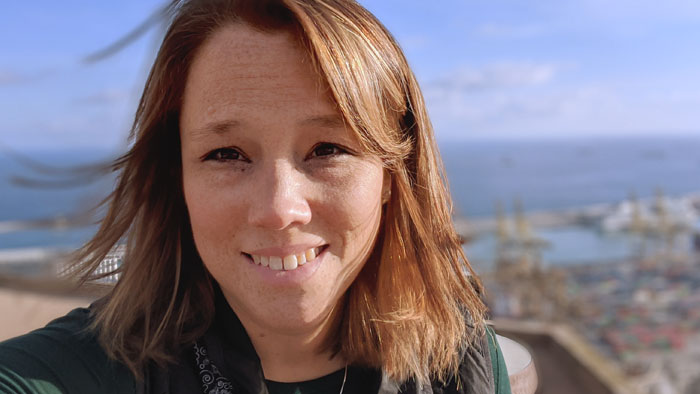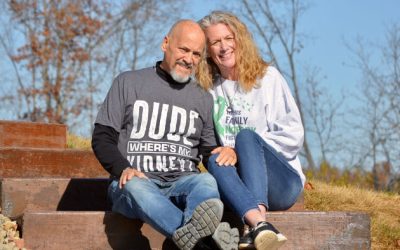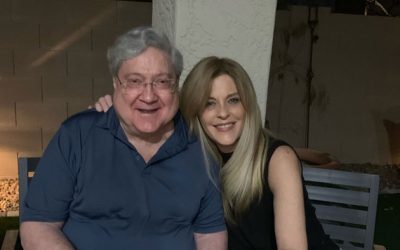The first hint I had that life was going to be different for me was in seventh grade, when I was nearly halted in my tracks by pain during my typical morning walk to the bus stop. By the time I got to school I was very sick, with a high fever and chills. I was quickly ushered to my pediatrician, then the local hospital to be admitted.
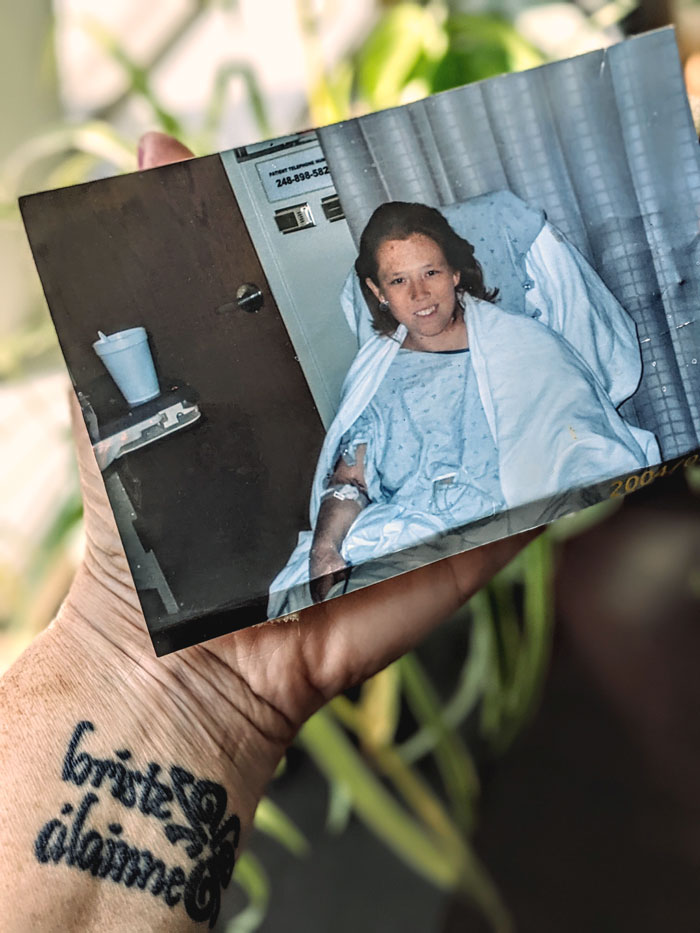 That was the beginning of my journey with kidney disease – I have chronic pyelonephritis, which is a recurring kidney infection, usually caused by birth defects in the kidney. These repeated infections can cause scarring of the kidneys and result in kidney failure. Remarkably, my condition stayed stable through college, but after graduation my kidneys began to fail. In 2002 I began peritoneal dialysis –something that had previously been explained to me as a very distant possibility — and began waiting for a kidney donor from the transplant list. Although I had 13 friends and family who tried to donate, unfortunately none of them matched.
That was the beginning of my journey with kidney disease – I have chronic pyelonephritis, which is a recurring kidney infection, usually caused by birth defects in the kidney. These repeated infections can cause scarring of the kidneys and result in kidney failure. Remarkably, my condition stayed stable through college, but after graduation my kidneys began to fail. In 2002 I began peritoneal dialysis –something that had previously been explained to me as a very distant possibility — and began waiting for a kidney donor from the transplant list. Although I had 13 friends and family who tried to donate, unfortunately none of them matched.
In 2003, I got the call – a 6-point antigen match! Five days later, I left the hospital feeling like a new person; but on day seven, I returned, losing my transplant, and returning to dialysis. This was undoubtedly one of the most difficult periods of my life. I was really sick with peritonitis and had transitioned to hemodialysis, which was harder on my body, making it impossible for me to work or be very active at all. It was a difficult year and I often wondered if I would make it through.
In June 2004, I got the call for a second time I remember being in bed on my 28th birthday, hooked up to the dialysis machine and watching Law & Order, when my phone rang. They told me they had another kidney for me. It is one thing to have been given a second chance at life, but to have a third given to you is incomprehensible. That phone call changed my life. His name is Joey – yes, I named my donor kidney – and he will be 18 years old this year.
Since then, I have faced several other serious health problems, including avascular necrosis, a condition where bone tissue dies. I spent about a year and a half in a wheelchair while I sought out treatment options. Then in 2006, on two separate occasions, I underwent bilateral Free Vascularized Fibular Graft surgeries, each followed by eight-week inpatient rehabilitation.
In 2012, I developed acute gastrointestinal issues and began struggling to maintain normal blood sugar levels, both issues related to the long-term use of immunosuppressant medications – the very medications that keep my alive. I worked hard to treat the issues as they arose and while it was difficult, for the most part I was successful. My career was blooming, I had returned to school to complete a long-time dream of earning a PhD, I was surrounded by people I love and cherish, and had the privilege of using my voice to advocate for the transplant community. And then, the unthinkable happened.
In 2015 I walked into a hospital for a routine test unrelated to transplant and did not walk out for 87 days. For weeks I was on a ventilator, going daily and sometimes twice a day back to the operating room for surgery or to interventional radiology to have drains added or moved or flushed. I did not stand up for five weeks and when I finally tried, even with the assistance of several others, I literally crumbled to the ground. Those 87 days were brutal. They were followed by months of rehab before I was able to return to work and years of treatment until April of 2018, when I underwent abdominal reconstruction surgery. The surgery was successful, but I have continued to battle with illness, needing multiple rounds of IV Iron infusions to boost my own levels, fighting through mobility limitations caused by peripheral neuropathy, and managing chronic pain that is the result of years of abdominal trauma.
Through it all, Joey has continued to be a trooper!
So often, what we hear about transplant are the success stories – the happiness that comes with knowing that you have gotten the most incredible gift of all. The gratitude that you feel to the person and family that has given you that gift. People expect you to be grateful, and I am immensely humbled and grateful every single day. It is the most overwhelming mix of emotions to process – I have someone else’s organ in me. It makes you feel so much more responsible for living a life that is full and that gives back to others around you, and to live out the legacy of the donor.
This gift has allowed me to experience great joy. I’ve watched my nieces grow into incredible humans, held my grandmother’s hand as she passed away, earned my PhD, traveled abroad solo, adopted a rescue dog, and settled into a life that I love and celebrate.
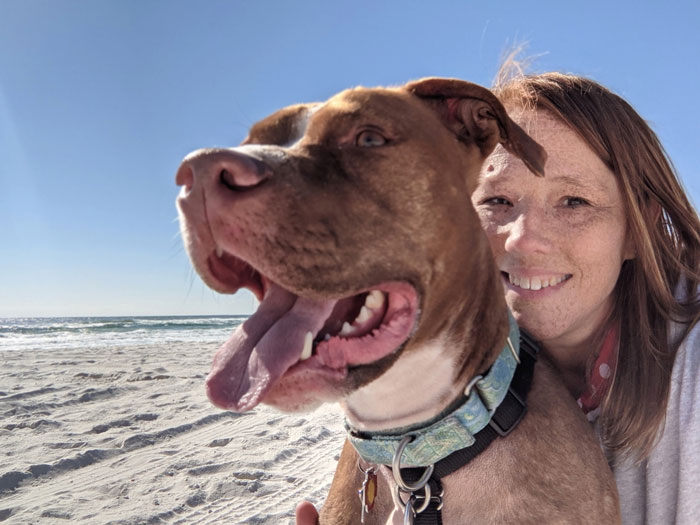
But what you do not hear about as frequently are the challenges that come as a recipient – and for me, I struggle with survivor’s guilt. I often asked myself why I was chosen while others were not, which is particularly difficult when someone I know and love is struggling with their own challenges. In the absence of any true answers, I committed my life to giving back, so that my donor families would never wonder if they made the right choice. I have had the privilege of participating in events hosted by my local organ procurement organization (OPO) and I’ve shared my story through speaking engagements on college campuses with the local Minority Organ Tissue Transplant Education Program (MOTTEP).
In late 2018 I began seeing a therapist to address the effects of the trauma I had experienced. It took some time and deep reflection for me to name this – even though the health care team is doing everything with the goal of saving your life, it is not any less scary or painful. Your body doesn’t know the difference. When the world shut down in March of 2020 and everyone around me was experiencing trauma, things felt like chaos to many people; however, I felt oddly peaceful in a way I could not quite explain. I realized that this was because of the work I had done to heal, and I was reminded yet again of the power of the human experience. I know that sharing my story provides space for others to work through their own journey to see themselves as a whole and valuable person, to allow themselves to grieve what they thought their life should be, while fully embracing what it can be.
Each year, in June, I celebrate a birth month in honor of my own birthday and Joey’s. I’m also remembering that Joey’s donor family is honoring the loss of someone that was an important part of their life. While I’m grateful, it is bittersweet in a lot of ways.
This past July, I had a rejection scare. My kidney function had deteriorated enough that my nephrologist wanted to do an immediate biopsy. It was a stark reminder that I must always be vigilant, and it caused me to pause and consider what it will be like when my kidney is no longer functioning efficiently. This isn’t being morbid, it is being a realist – statistically speaking, I will likely outlive this transplant. I was diagnosed with COVID in August of 2021 and have been navigating the impacts of that experience as recently as this past month when I underwent another round of IV Iron infusions.
That is how living with a transplant goes. It’s every day. The joy and the sadness. I am immensely grateful, but I am human as well.
I want to help break down the myths and misconceptions about organ and tissue donation. I want people who know me to think about what it means to live with a transplant. And I want people who have been personally impacted by organ donation to know that I stand beside them. I try to live my life every single day in a way that honors my donor, and believe in the power of authentic connection, self-advocacy, and genuine care. I have a gift, and I’m not going to waste a single second.

Saving lives together
We need your help getting closer to our vision of a lifesaving transplant for everyone in need. With your support, we can save more lives.
When you give to UNOS, you join a community dedicated to improving the transplant system. Your gift is an investment, supporting innovative research and data-driven projects working to reduce waiting time, enhance recipient quality of life and increase transplants.
Your support makes this lifesaving mission possible. Give today.
